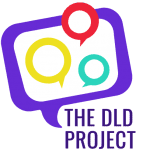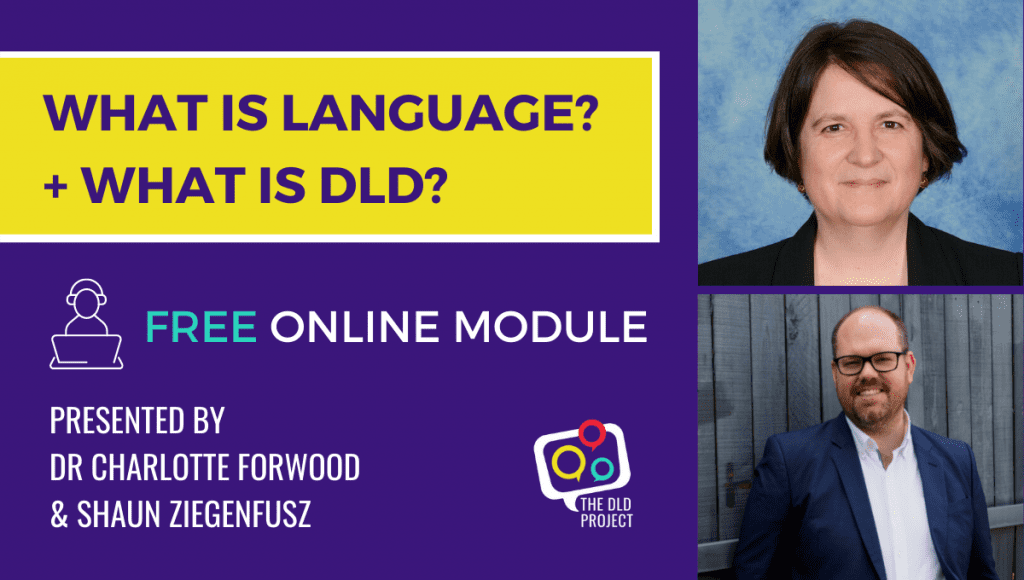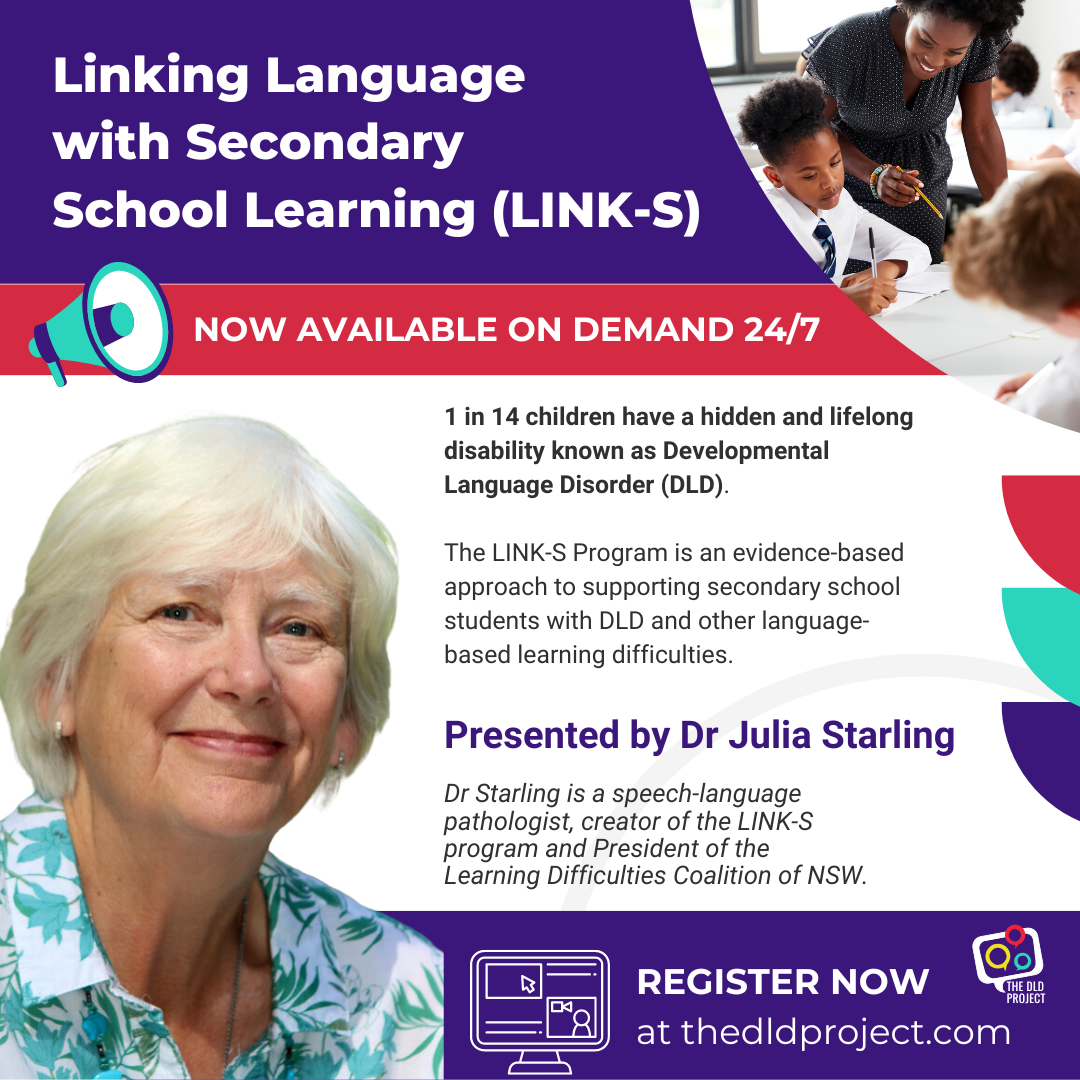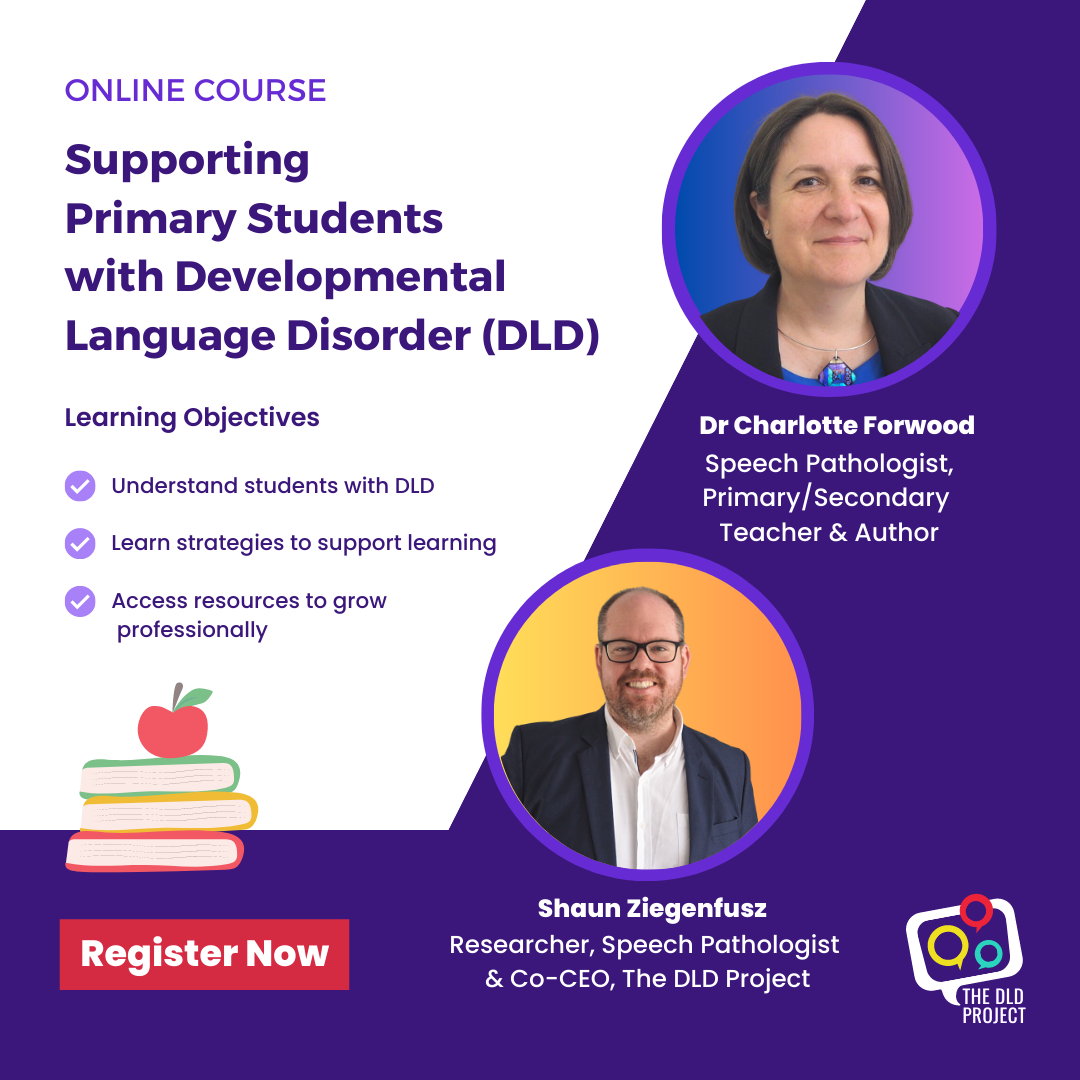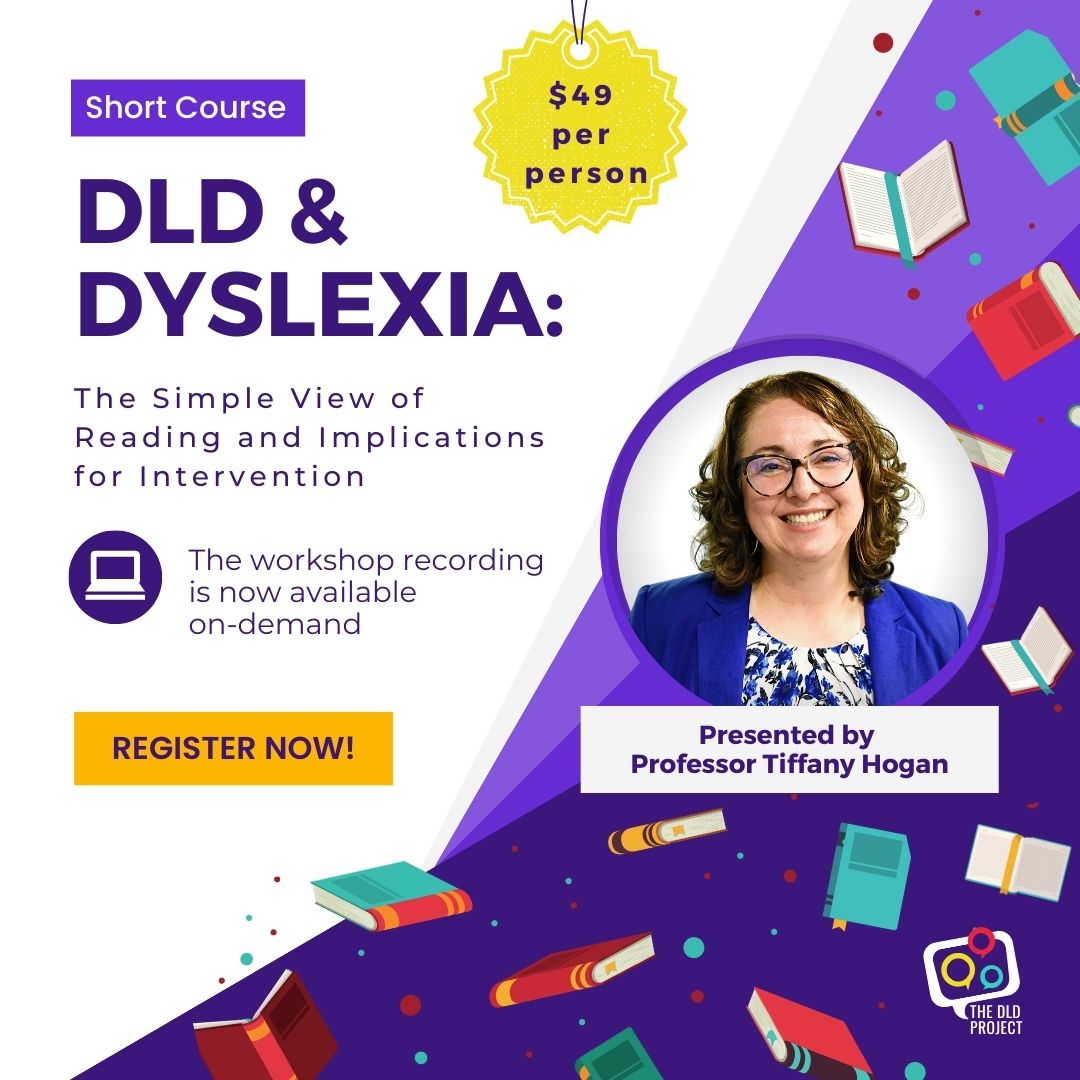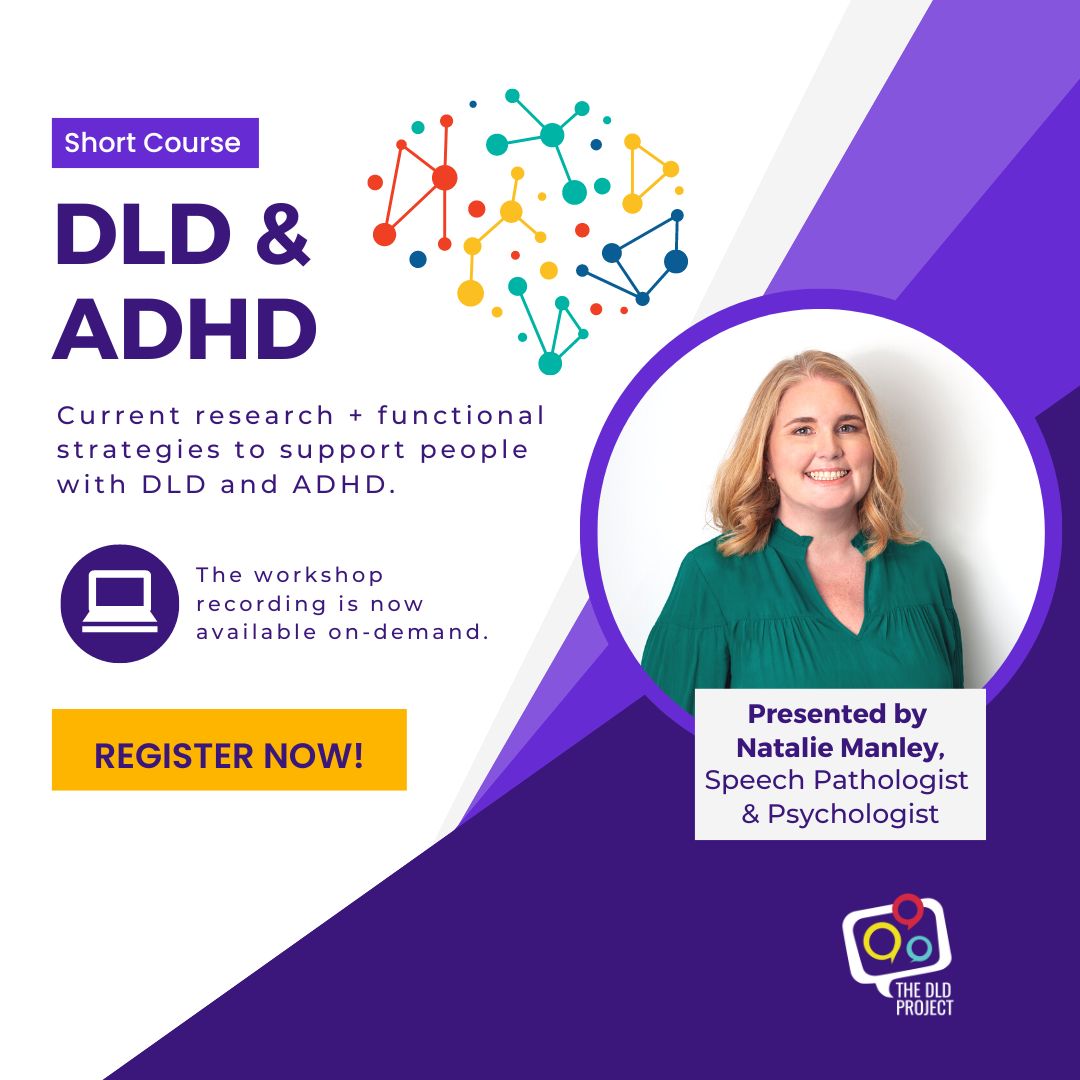Training for Educators
Identifying the two children with Developmental Language Disorder (DLD) in the average classroom can be challenging especially when we’re still learning more about DLD every day. We truly believe one of the most important places to create greater awareness of DLD is in schools. With this in mind, we have invested in developing training options for educators.
What is language? + what is dld?
FREE ONLINE COURSE: The What is Language? + What is DLD? course has been created to give teachers and families a brief overview of language and Developmental Language Disorder (DLD). It provides a starting point for conversations and more in depth exploration of language and DLD, a hidden but common disability that affects two children in the average classroom of 30 students.
The Linking Language with Secondary School Learning (LINK-S) Program is an evidence-based professionally collaborative approach to supporting secondary school students with Developmental Language Disorder (DLD) and other language-based learning difficulties.
new!! Supporting Primary Students with Developmental Language Disorder (DLD)
DLD can have a significant impact on a student’s ability to experience academic success, autonomy and relationships with others. This bespoke program has been purposefully designed for primary classroom teachers and offers both on demand and real-time online learning. This program combines current research with functional strategies to support primary school-aged students with DLD.
During this 2-hour on demand workshop, recent research on the language basis of reading will be reviewed through a developmental lens. Poor reader subgroups – Developmental Language Disorder (DLD) and Dyslexia – will be described with a focus on early identification and efficacious intervention. This workshop combines current research and interventions to address the challenges experienced by children with DLD and Dyslexia.
Developmental Language Disorder (DLD) and Attention Deficit Hyperactivity Disorder (ADHD) frequently co-occur. The impact of these disorders span across all aspects of life, including academic achievement, social interactions and employment. Individuals with DLD and ADHD are known to have differences in their executive and adaptive functioning, attention, memory, affect and emotional regulation. Understanding the impact of these needs and how to best support individuals to live their best life is crucial for families, educators and clinicians. This workshop combines current research with functional strategies to address the challenges experienced by people with DLD and ADHD.
